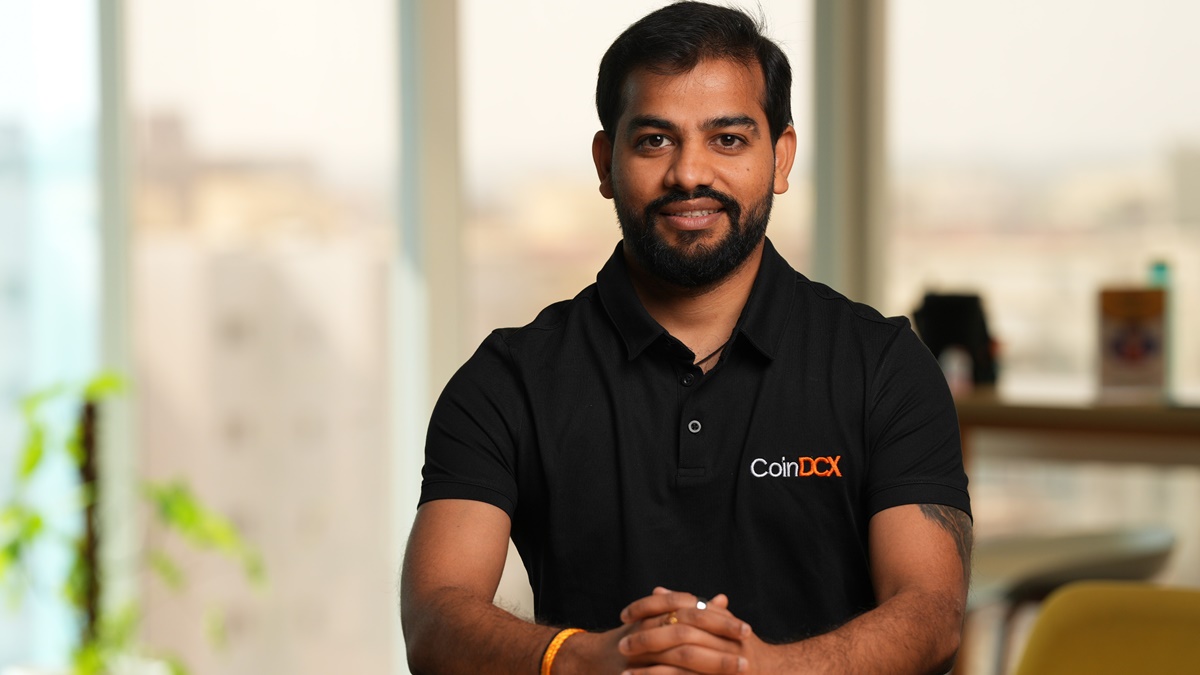
With Bitcoin hitting new highs, India’s crypto platforms are celebrating. Crypto exchange startup CoinDCX, also India’s first crypto unicorn, recorded Rs 23,497 crore in spot trading volume in the first half of this year, a 37% jump over H1 last year. In an interaction with S Shanthi, Sumit Gupta, co-founder, CoinDCX, talks about the recent shift in how the country is approaching Web3 and crypto policy, improved capital flow towards startups with strong product-market fit and how the company is recovering from the $44 million loss it faced due to a security breach last month.
ALSO READ‘Money makes people poor’, Rich Dad Poor Dad author Robert Kiyosaki asks ‘why work all life and end up poor’
Bitcoin has been hitting new all-time highs this year. Do you think this will put an end to negative market sentiments towards crypto?
Yes, the sentiment around crypto has shifted. Bitcoin hitting new all-time highs has played a major role, and Ethereum’s continued resilience has further reinforced confidence in foundational protocols. The approval of spot Bitcoin and Ethereum ETFs in the US was a big milestone. It’s no longer just about institutional interest. We are seeing real institutional participation. Good startups with solid fundamentals are once again being seen as high-potential opportunities, and the blanket pessimism we saw during the downturn is steadily fading.
CoinDCX suffered a $44 million security breach last month, but there was zero impact on customer assets. How did you ensure that?
The incident took place in an internal liquidity-provisioning account and never touched customer wallets. Around 95% of user funds are secured in segregated cold wallets, a conscious decision to minimise exposure. In the unlikely event of a breach, this ensures that no more than $10 million could ever be at risk. These wallets are protected with multiple layers of security and are insured. On top of that, our Crypto Investor Protection Fund (CIPF) of Rs 70 crore( as on date) provides an additional safety net for users. The corpus is not static; contributions are added every month, making the fund stronger over time. The $44 million loss was absorbed entirely by the company’s treasury, ensuring zero impact on customer assets.
Are you relooking your future-proofing strategy?
We follow a rigorous security audit process that includes regular external assessments aligned with our ISO 27001 and 27701 certifications. In addition, we engage specialised third-party agencies to conduct independent penetration testing. However, it’s also true that cyber threats have grown increasingly sophisticated and even the most resilient systems are being tested. We will continue to strengthen our security in line with global standards. We are re-architecting parts of our system to be even more resilient. We are working with top global cybersecurity firms to audit our infrastructure and are already implementing their recommendations.
How have you been navigating the regulatory challenges in the sector?
Ever since the G20 Summit was held in India, we have seen meaningful progress in how the country is approaching Web3 and crypto policy. A few years ago, there were serious conversations about banning the industry altogether. Today, we have well-defined guidelines around anti-money laundering, KYC, advertising, and taxation. We have also seen progress on the compliance side, with the announcement that the Crypto Asset Reporting Framework will come into effect from 2026. That’s another step toward building a more predictable and mature regulatory environment. What’s even more important is the realisation that serious players in this space genuinely want to comply.
In 2022 and 2023, many crypto startups in India shut shop. How did you sail through?
We have the backing of some of the world’s leading investors who believe in India’s crypto story. Our total funding stands at Rs 2,144 crore. But more than the capital, we understood early on that crypto would eventually move towards regulation, and we prepared ourselves for that reality. CoinDCX was the first Indian exchange to register with the Financial Intelligence Unit (FIU-IND), we secured ISO certifications, published real-time Proof of Reserves, and created a Rs 60 crore Crypto Investor Protection Fund. Everything we did was about building trust. And now, we are seeing the tide turn.
How have FY24 and FY25 been for you in terms of growth?
Our annualised group revenue stands at Rs 1,179 crore, backed by Rs 13.7 lakh crore in annualised transaction volumes across products. With assets under custody exceeding Rs 10,000 crore, the numbers reflect growing user trust and platform maturity. In the first half of this year alone, we recorded Rs 23,497 crore in spot trading volume, a 37% jump over H1 last year. We have also grown to 2 crore registered users, up 30% from the same time last year.
Deciphering the crypto tax code
Tell us about your recent entry into international markets.
While we remain committed to the Indian market, we have already started to focus on expanding to other countries with progressive crypto regulation. With the acquisition of BitOasis in 2024, we became the first Indian exchange to expand into the MENA region. BitOasis is now fully licensed by Dubai’s VARA, and since our partnership, they have recorded a 30% increase in trades, a 40% rise in volume, and a 50% jump in revenue.
Do you think the current momentum will significantly improve the VC fund flow into the sector?
Funding is no longer about hype; it’s about fundamentals. We are seeing capital flow towards startups with strong product-market fit, clear compliance posture, and scalable infrastructure. According to the India Web3 Landscape Report 2024 by Hashed Emergent, Indian Web3 startups raised $564 million in 2024, an astonishing 109% jump from the prior year, bringing cumulative sector funding to over $3 billion.






